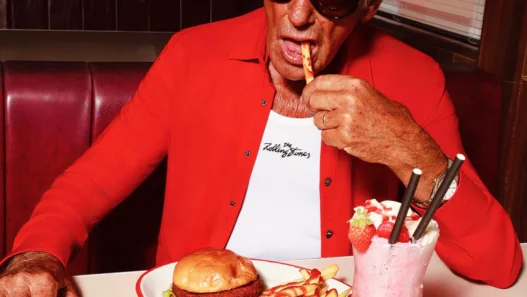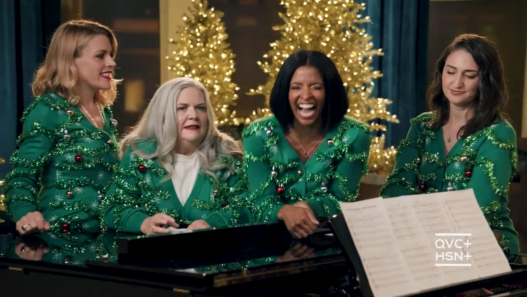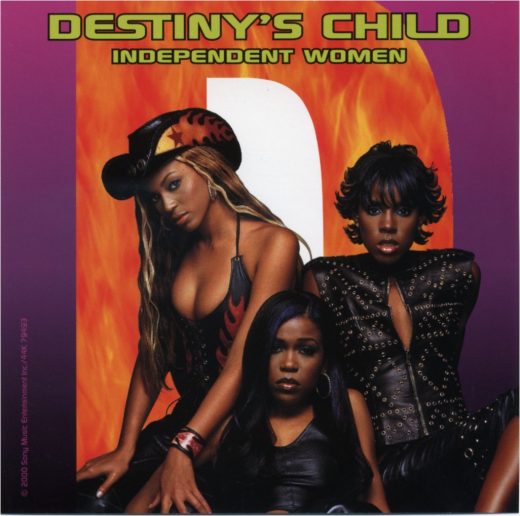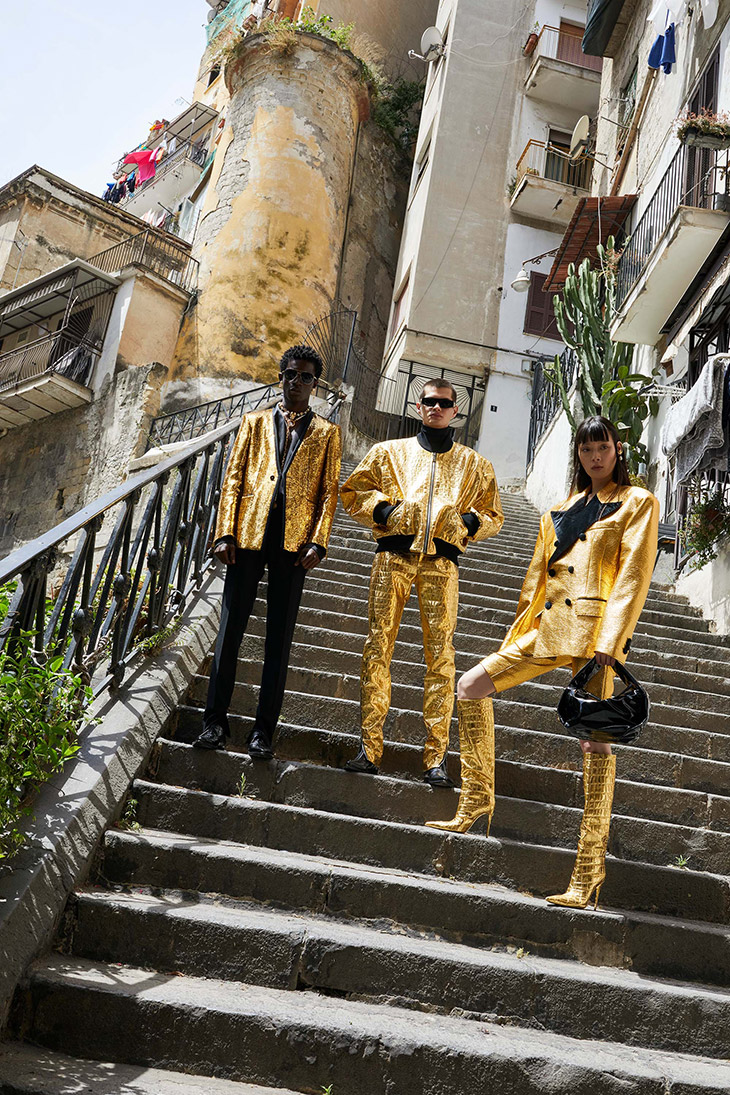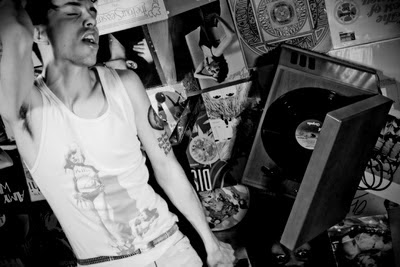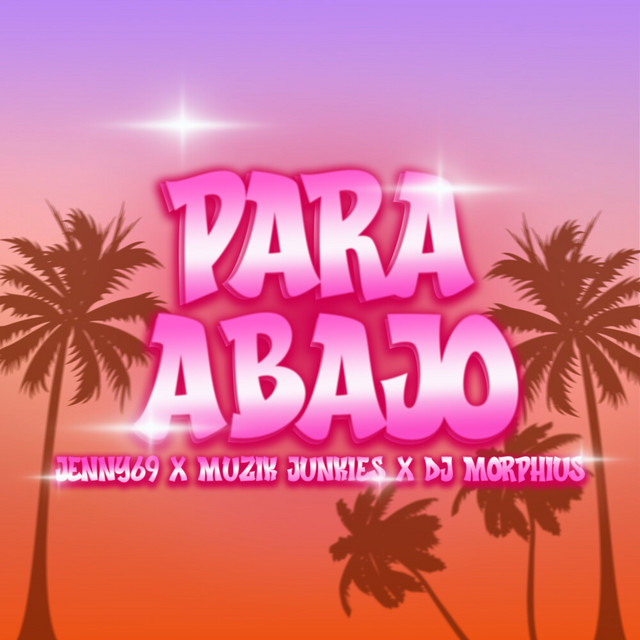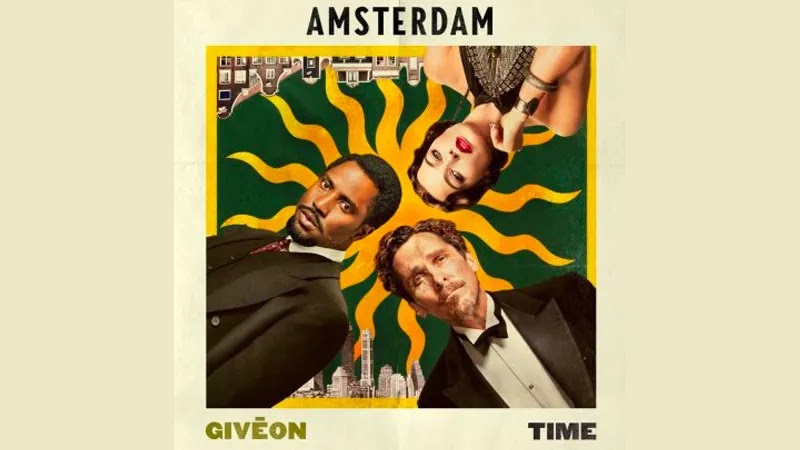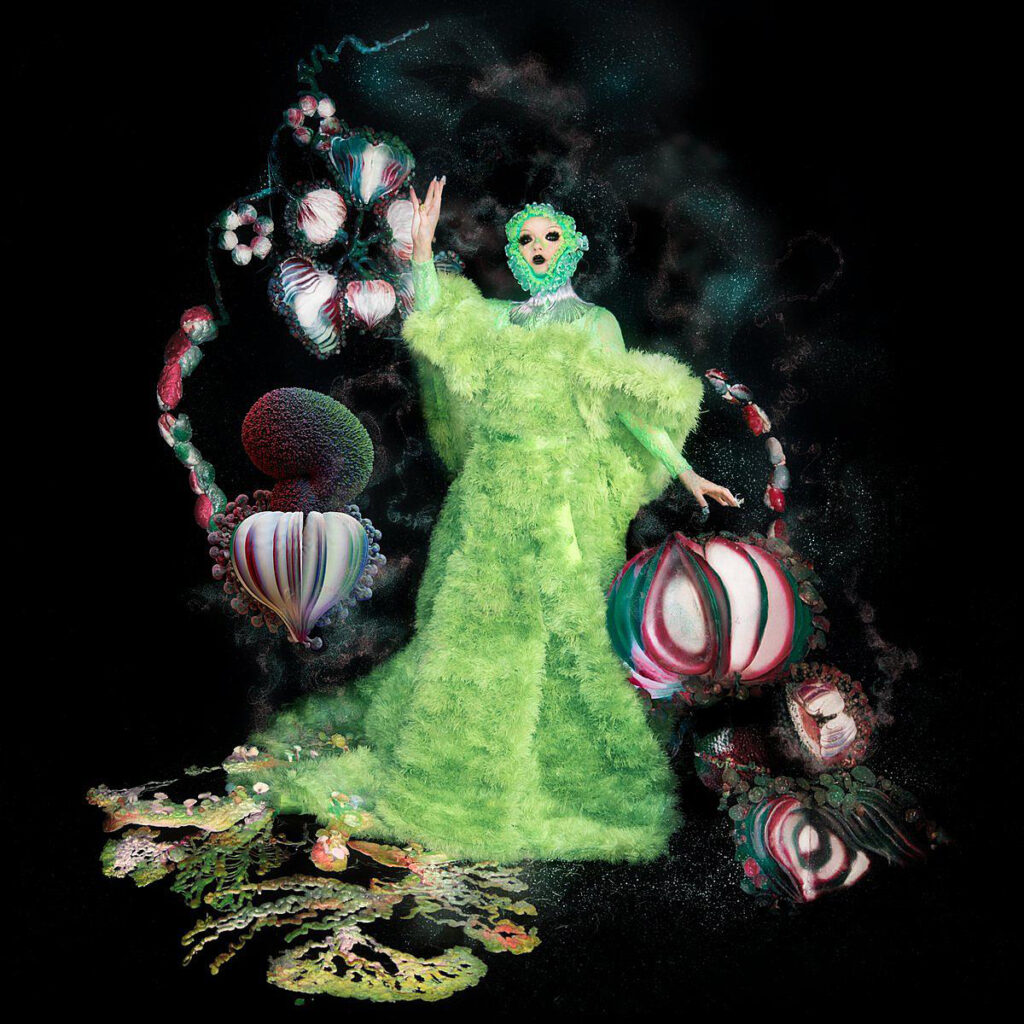According to one of our preferred sources:
I’m not sure when the term “branding” came into common usage. For most of its history, the word “branding” meant burning ownership symbols into skin. When people use the word these days, that’s not usually what they’re talking about. Instead, branding is a more nebulous verb, a name given to the advancement of a certain kind of personal or corporate interest. The Webster’s website says that the first known use of this kind of branding dates back to 1913, but I don’t remember that kind of branding being a thing that people talked about until maybe 15 years ago. These days, branding is just a thing we’re all expected to do. We’ve got all these social-media channels, and we’re supposed to use them to put forward whatever personal brand we want to push, even if the vast and overwhelming majority of the public does not give a fuck who we are.
Branding has existed in popular music since long before the birth of rock ‘n’ roll. Going back to the origins of recorded music, every halfway notable singer has had some kind of trademark vocal inflection or tic. Plenty of those singers have been happy to work their own names into their lyrics. But branding became a more prevalent pop-music strategy early this century. Today, songs aren’t just songs; they’re ways for artists to present their images to the public. The biggest song of this year is a Harry Styles joint that seems to exist mostly as a vehicle for the Harry Styles persona, which generally seems to be a whole lot more compelling than any music that the man has made.
The rise of branding strategies in pop music doesn’t have to be a good thing or a bad thing. It’s just a thing, a phenomenon that was probably inevitable. Consider the case of “Independent Women Part 1,” the third chart-topper from Destiny’s Child. You could probably talk about “Independent Women” as a song and nothing more, but what would be the point? That’s not the function that “Independent Women” serves. Instead, “Independent Women” is a hard reset for the group who made it, a work of damage control after a bunch of lineup changes had affected the group’s image. The song is also a straight-up and unapologetic advertisement for a major motion picture, and it’s a clarification of a previous Destiny’s Child hit. The song has to work on multiple levels that go beyond “sounds good on the radio.” Amazingly enough, “Independent Women Part 1” fulfills all of its objectives. It’s my least favorite of Destiny’s Child’s #1 hits, but it’s still a triumphant work of image control, and it’s also a pretty good song.
“Independent Women Part 1” came at the end of a busy, chaotic year for Destiny’s Child. At the beginning of 2000, Destiny’s Child was a quartet of four childhood friends from Houston. That changed. Group members LaTavia Roberson and LeToya Luckett were complaining about Mathew Knowles’ management of Destiny’s Child, and especially about the way that Knowles seemed to be building the group as a vehicle for his daughter Beyoncé. Knowles responded by kicking the two of them out of the group, something that they didn’t realize until they saw two other women lip-syncing their parts in the video for Destiny’s Child’s chart-topping masterpiece “Say My Name.”
Mathew Knowles had installed two new members, Michelle Williams and Farrah Franklin, in Destiny’s Child. LaTavia Roberson and LeToya Luckett were pissed off. They sued, and they also launched a public war of words against their former bandmates. The remaining Destiny’s Child members clapped back in interviews. Along the way, Farrah Franklin missed a few engagements, so she was kicked out, too. By the end of 2000, Destiny’s Child had decided to go forward as a trio — Beyoncé, Kelly Rowland, and Michelle Williams — and they had to deal with all the bad PR that came out of those merciless personnel moves.
They had to deal with other PR issues, too. Beyoncé didn’t like the reaction to “Bills, Bills, Bills,” Destiny’s Child’s first chart-topper. Beyoncé and the other Destiny’s Child members had rewritten the “Bills, Bills, Bills” lyrics to make it clear that the song was about financial independence, not about being gold-diggers or relying on boyfriends to pay for everything. Nobody had noticed. In Fred Bronson’s Billboard Book Of Number 1 Hits, Beyoncé says, “I was mad because people misunderstood ‘Bills,’ and I was mad at my boyfriend at the time. I was like, ‘I don’t need a man. I’m independent.’ So I went in the studio by myself. I didn’t tell anybody, and I did the song.”
Beyoncé had written the beginnings of the song that would become “Independent Women Part 1,” but that version of the song didn’t sound much like the one that would eventually come out. For one thing, Beyoncé’s song had nothing to do with Charlie’s Angels, the flashy and big-budget cinematic reboot of the ’70s TV series. A few producers combined Beyoncé’s vocals with a sample of Mr. Peabody and Sherman’s frantically discordant theme music. Later on, that version of the song appeared on Destiny’s Child’s 2001 album Survivor as “Independent Women Part 2.” It’s a slightly unhinged cartoon bounce-track, and I think I like it better than the “Independent Women” that became a hit.
When Mathew Knowles heard that first version of “Independent Women,” he had bigger plans for the song. In the Bronson book, Beyoncé says, “My dad heard it, and he let the label hear it, and they said, ‘That’s the soundtrack to Charlie’s Angels. That’s the first single.’ So we went back in the studio. I went in with the girls and changed some of the words and made it fit the movie.” She changed a lot of the words. A song about standing on your own two feet economically became pure Hollywood promo.
The Aaron Spelling-produced Charlie’s Angels TV series had run from 1976 to 1981, and its reputation, at least from what I can understand, was that it was a sort of proto-Baywatch — a way for horny teenagers to watch beautiful women running around and kicking. The show made stars out of women like Farrah Fawcett and Cheryl Ladd, but it wasn’t exactly a cultural fixture in the ’90s. I must’ve seen at least one Charlie’s Angels rerun at some point, but I mostly remember experiencing the show as a retro-ironic ringer tee that they sold at Spencer’s Gifts.
Movie reboots of old TV shows were big business in the ’90s, especially after The Fugitive, and Columbia Pictures put a film version of Charlie’s Angels into development. Drew Barrymore got interested in the project, and she signed on as both star and producer. Barrymore wanted the movie to be more of a pop-feminist thing, and she got her friend Cameron Diaz, one of the biggest stars in the world at the time, to join up. Eventually, they also brought in Lucy Liu, who’d just become a sensation on Ally McBeal. The director that the producers picked was McG, who’d made a lot of flashy music videos but who’d never made a movie.
McG’s approach was to turn Charlie’s Angels into a hyperactive screwball action-comedy with a lot of fighting and absolutely no stakes. The three stars all did a whole lot of wire-work kung fu, but it wasn’t mind-blowing, the way it was in The Matrix or Crouching Tiger, Hidden Dragon. Instead, it was one more way to turn the whole movie into a blur of motion. There were also a few dance numbers and a lot of innuendo-based sex jokes. Bill Murray was in it? And Crispin Glover? Sam Rockwell was the villain? LL Cool J and Drew Barrymore’s then-husband Tom Green made cameos? I haven’t seen the Charlie’s Angels movie in many years, and I definitely thought it was dumber than dirt when it came out, but I bet I’d have a good time with it now.
The Charlie’s Angels producers were really into the idea of getting Destiny’s Child on the soundtrack. In the Fred Bronson book, John Houlihan, the movie’s soundtrack supervisor, says, “As luck would have it, Destiny’s Child were changing from four members to three, and since there are three Charlie’s Angels, we all sensed it was a great opportunity for them to come on strong with their new lineup and mirror our film.” That’s exactly what they did. As recently as 2018, when Destiny’s Child reunited during Beyoncé’s astonishing Coachella set, they made their grand entrance via stage elevator, doing the Charlie’s Angels silhouette pose.
When Destiny’s Child re-recorded “Independent Women” for Charlie’s Angels, they didn’t work with the track’s original producers or with any of the collaborators from their album The Writing’s On The Wall. Instead, they went with the Trackmasters, the Brooklyn production team of Jean Claude “Poke” Olivier and Samuel “Tone” Barnes. The Trackmasters had already made “Gettin’ Jiggy Wit It” with Will Smith.
The Trackmasters specialized in bright, synthy, clubby rap music. They had sharp instincts. They’d signed Nas to their Columbia imprint Trackmasters Entertainment, and they’d also signed 50 Cent, a guy who will eventually appear in this column, before 50 got shot and Columbia dropped him. Among rap-dork circles, the Trackmasters don’t exactly have a great reputation. They were the guys who pushed Nas in a more radio-friendly direction on It Was Written and who produced “Jigga That N***a,” the one song on Jay-Z’s The Blueprint that nobody will admit to liking. But the Trackmasters made a lot of bangers, too: Soul For Real’s “Candy Rain,” LL Cool J’s “I Shot Ya,” Cam’ron’s “Horse & Carriage.” Tone co-produced Biggie’s “Juicy.” I’ve never been mad at the Trackmasters.
In a way, “Independent Women” signals a slight change in musical direction for both Destiny’s Child and for pop-facing R&B in general. On The Writing’s On The Wall, Destiny’s Child had done incredible things with the jittery, tricky, complicated tracks that producers like Rodney Jerkins and Kevin “She’kspere” Briggs were making. But that whole era of Timbaland-style avant-garde creativity was on the wane, and simpler, more linear tracks were starting to take over. I love that whole late-’90s Timbaland style, but there’s also a lot to like about the stuff that replaced it.
“Independent Women” moves with a mechanistic efficiency. It’s funky without being messy. The song starts with a few hissing hi-hat sounds before a syncopated lurch arrives. That, along with some vaguely cinematic string-stabs and washes, is really the whole of the track. Beyoncé starts the song off with a murmuring talk-sing thing, and she moves up to stentorian belting on the hook. Beyoncé co-produced the song with the Trackmasters and Jennifer Lopez’s “If You Had My Love” collaborator Cory Rooney, and Rooney and the Trackmasters both got songwriting credit. In the Bronson book, though, Tone straight up says that Beyoncé wrote the song. She was definitely its creative engine, even if the Trackmasters and Rooney reworked it completely, doing a whole lot so that it would fit the movie’s requirements.
Destiny’s Child really worked to turn “Independent Women” into a Charlie’s Angels song. It’s not a full-on lyrical plot recap like Will Smith’s “Wild Wild West,” but it goes fully overboard on the branding. On the intro, Destiny’s Child shout out the movie’s three stars. (I like how Beyoncé says Cameron Diaz’s name like she was Cam’ron.) They also repeatedly drop the name of the movie. They ask Charlie how his Angels get down like that. They announce plans to break these people off, Angel-style. You’ve got to feel bad for Farrah Franklin for getting kicked out of the group before they released their Charlie’s Angels song, thus robbing her of her chance to pay tribute to the other famous Farrah. But Farrah actually did sing on “Independent Women”; her vocals are still there in the background.
The constant mentions of Charlie’s Angels feel like product placement, but they fit the whole get-money message of the song relatively seamlessly. The version of feminism presented on “Independent Women” is fully based in capitalism. On the pre-chorus, Kelly Rowland nicely complements Beyoncé’s maximalism by underplaying it. Kelly sings that she bought her shoes, clothes, rock, watch, house, and car. Beyoncé talks down on women who get their money from a man: “If you’re gonna brag, make sure it’s your money you flaunt/ Depend on no one else to give you what you want.” She also sings about kicking out a one-night stand right away: “Only ring your celly when I’m feelin’ lonely/ When it’s all over, please get up and leave” — an echo of the sort of thing that Beyoncé’s future husband was always saying about his own hook-ups at the time.
That kind of empowerment, the sort built around big-money flexing, has always grated on me a little bit. It seems to me that there are ways to fight for equality that aren’t based in avaricious consumption. Then again, I’m a white guy who’s never gone hungry, so that’s easy for me to say. I’m sure plenty of honeys making money and mamas who profit dollars heard the “Independent Women” chorus as something anthemic and inspiring. Plenty of them probably needed to hear it. And the get-paid stuff lines up with the constant movie name-checks, since you know someone is paying Destiny’s Child a whole lot of money to keep mentioning their movie. Destiny’s Child are living what they sing.
For me, “Independent Women” is a solidly effective club-jam. It’s nowhere near as twisty and inventive as the past two Destiny’s Child chart-toppers, but it works. It sounds big and intense and bulletproof. It has presence. Beyoncé sounds righteously pissed off, and very few singers convey that feeling as well as her. My favorite part by far is the bridge, where the beat drops out and the deliriously layered vocals come in, briefly swiping the melody from Blondie’s “Rapture” to talk about Child of Destiny and independent beauty. That shit goes crazy.
The movie people were thrilled, of course. In the Bronson book, soundtrack supervisor John Houlihan goes on about the “brilliant marketing tool” that the song became. The song almost certainly helped sell the movie, which became a big hit, taking in $125 million at the domestic box office. (It earned just slightly less than Steven Soderbergh’s Erin Brockovich and just slightly more than Steven Soderbergh’s Traffic.) But the song was also a brilliant marketing tool for Destiny’s Child themselves. It allowed them to etch themselves in the cultural memory as a trio, jettisoning all memory of the three women who’d been kicked out of the group in the previous year.
In the “Independent Women” video, the three Destiny’s Child members played their own kind of Charlie’s Angels. Francis Lawrence, the future director of four Hunger Games movies, shows Destiny’s Child rocking beautifully color-coordinated costumes in futuristic training rooms. They race motorcycles and get in kung fu fights, and I find myself wishing that they’d been the stars of the movie. In the context of the video, the clips from the film look painfully weak.
“Independent Women” became Destiny’s Child’s longest-reigning #1 hit, though it’s nowhere near their most popular song these days. (“Say My Name” has almost three times as many Spotify streams.) “Independent Women” held the #1 spot for longer than any song in the first few years of the young century. It was #1 when George W. Bush squeaked by Al Gore on a shady Supreme Court victory in November, and it was still #1 when Bush was inaugurated in January. Destiny’s Child performed at Bush’s inauguration, a strange relic of a time when the political culture war was simmering more quietly. (The Bush Republicans were more amped about actual war, which, upon reflection, is way worse.) At the inauguration, Beyoncé told the crowd, “I wanna hear you say Bush!” That wasn’t good branding, but it was probably better than Jessica Simpson singing, “George, I think I’m in love with you,” which also happened.
Destiny’s Child used “Independent Women Part 1” as the opening track on Survivor, the album that they released in April of 2001, and they followed that song with another single that attacked a lot of the same themes in a lot of the same ways. “Survivor” goes for a similar strain of motivational defiance. The former Destiny’s Child members LaTavia Roberson and LeToya Luckett had settled their lawsuit against Mathew Knowles, and one of the settlement’s terms was that the parties couldn’t publicly talk shit about each other anymore. But since some of the “Survivor” lyrics took direct aim at the group’s ex-members — “You thought that I’d be stressed without you, but I’m chillin’/ You thought that I wouldn’t sell without you, sold nine million” — they filed another lawsuit, and Mathew settled that one, too. (“Survivor” peaked at #2. It’s a 7.) Destiny’s Child survived that lawsuit and any attendant bad publicity just fine. We’ll see them in this column again.
GRADE: 7/10 – The Number Ones: Destiny’s Child’s “Independent Women Part 1” (stereogum.com)





